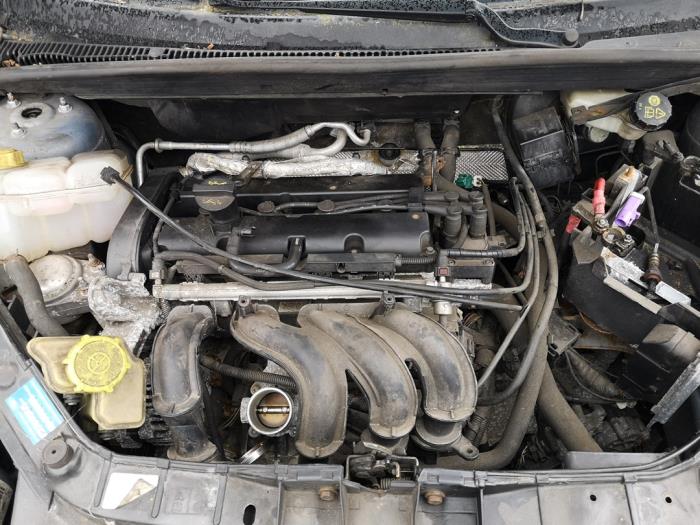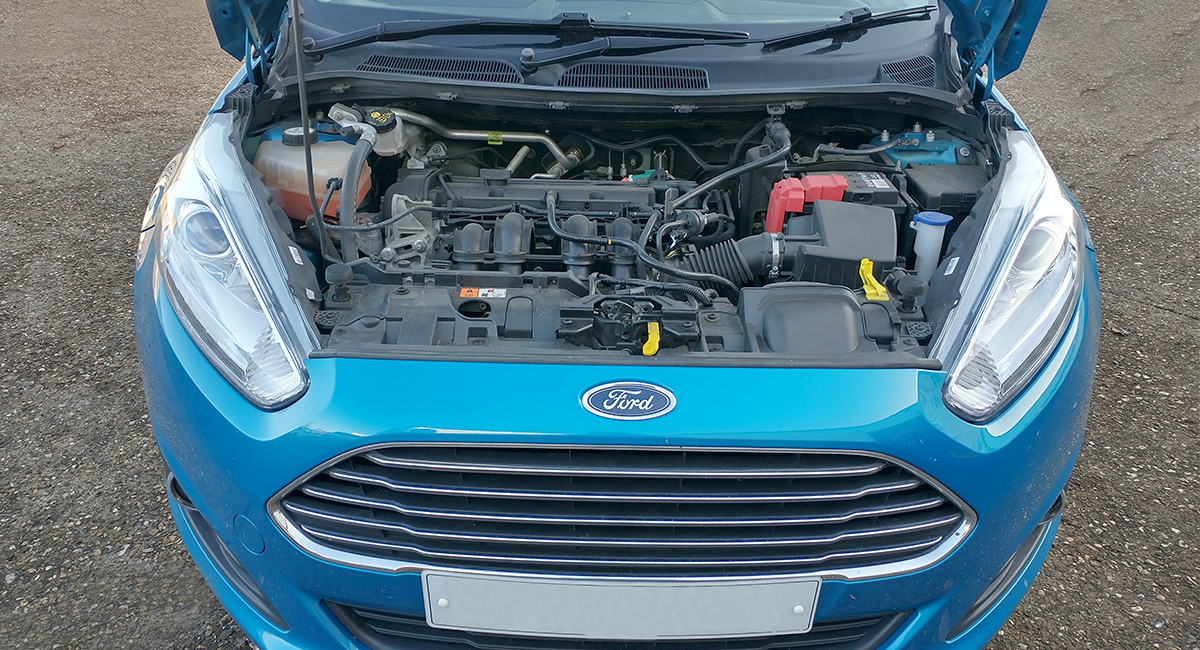Why Regular Maintenance of Your Ford Fiesta Engine Is Essential
Why Regular Maintenance of Your Ford Fiesta Engine Is Essential
Blog Article
The Future of Engines: Technologies Driving Lasting Power Solutions
As the automotive industry navigates the necessary transition towards sustainability, the future of engines is increasingly defined by groundbreaking advancements. Electric engine improvements, alongside promising growths in hydrogen fuel cells and biofuels, are reshaping the landscape of power solutions.
Electric Engine Dope
The development of electric engine growths symbolizes a pivotal change in the automotive and aerospace sectors, driven by the immediate requirement for sustainable alternatives to fossil gas. This change is characterized by significant developments in battery innovation, power electronics, and electrical motor design, which jointly boost the performance and efficiency of electrical engines.
Recent innovations have caused the creation of lighter, a lot more energy-dense batteries, such as lithium-silicon and solid-state batteries, which promise longer ranges and much shorter billing times. Additionally, enhancements in electrical motor efficiency, such as the usage of irreversible magnets and progressed cooling systems, make it possible for electric engines to operate successfully under varying problems. These improvements not only improve lorry efficiency however also add to a reduction in overall energy consumption.
In addition, the combination of sophisticated software formulas has maximized power administration in electric vehicles, allowing for regenerative stopping and predictive charging approaches. As manufacturers significantly accept electric propulsion, the aerospace and automobile markets are observing a standard change towards greener modern technologies. This development not just satisfies regulatory demands but also lines up with customer preferences for eco-friendly transport options, strengthening electrical engines as a foundation of future lasting mobility.
Developments in Biofuels
As the aerospace and vehicle industries increasingly prioritize lasting power sources, innovations in biofuels become a corresponding service to electrical engines. Biofuels, stemmed from organic products such as plants, waste, and algae, present an ingenious opportunity for decreasing greenhouse gas discharges and reliance on nonrenewable fuel sources.
Recent research study has concentrated on enhancing the performance and sustainability of biofuel manufacturing. Second-generation biofuels utilize non-food feedstocks, reducing competition with food supply and reducing ecological influence. Additionally, developments in synthetic biology have allowed the design of microorganisms to generate biofuels much more effectively, causing higher yields and reduced manufacturing costs.
Furthermore, the development of drop-in biofuels enables for seamless integration right into existing facilities, making it possible for a smoother transition for markets typically depending on fossil fuels. ford fiesta engine. These gas can be used in present engines without alterations, promoting their fostering across numerous markets
Investments in biofuel technology, in addition to helpful policies, are crucial to drive development and scalability. As the global community seeks to deal with climate adjustment, biofuels use a practical, instant service that lines up with the overarching objective of sustainability in transport and aviation.
Hydrogen Gas Cell Technology
A growing number of researchers and companies are discovering hydrogen fuel cell technology as a viable choice to traditional power resources in transport and energy systems. This modern technology transforms chemical power from hydrogen into electrical energy via an electrochemical reaction, with water as the only byproduct, making it an eco-friendly alternative.
The core of hydrogen fuel cells is the fuel cell stack, where hydrogen molecules are divided into electrons and protons. The flow of electrons creates electrical energy, while protons move with a membrane layer to integrate with oxygen from the air, forming water. This procedure leads to high effectiveness and low emissions, placing hydrogen gas cells as a critical player in the shift to sustainable energy.
Considerable improvements have been made in improving the durability and effectiveness of fuel cells, together with decreasing prices via cutting-edge manufacturing methods. Moreover, the development of hydrogen production techniques, such as electrolysis powered by renewable resource resources, improves the sustainability of the general system. As framework for hydrogen refueling expands and manufacturing methods end up being more reliable, hydrogen fuel cell technology holds terrific guarantee for decarbonizing different markets, including durable transportation and stationary power generation.
Hybrid Equipments and Their Effect
Crossbreed systems stand for a substantial evolution in lasting engine technology, merging traditional interior burning engines with electrical propulsion to optimize energy effectiveness and lower emissions (ford fiesta engine). This twin approach allows automobiles to utilize both source of power, making it possible for better versatility in energy intake and minimizing reliance on fossil gas

In enhancement to ecological benefits, hybrid systems provide consumers helpful site a viable change in the direction of totally electric cars. They alleviate variety anxiety by combining the comfort of gasoline with the benefits of electric propulsion, making them an eye-catching choice for a wider audience.
The Duty of AI in Engine Layout
Leveraging innovative formulas and artificial intelligence methods, the automotive market is progressively integrating synthetic knowledge (AI) right into engine design procedures. AI improves the efficiency and efficiency of layout by assessing huge datasets to recognize optimum setups and efficiency criteria. This capability enables designers to imitate various operating conditions and forecast engine actions under numerous scenarios, considerably reducing the time and price linked with standard prototyping approaches.
In addition, AI promotes the advancement of innovative materials and burning processes tailored for sustainability. By optimizing fuel effectiveness and reducing exhausts, AI-driven styles line up with international efforts focused on minimizing the carbon footprint of vehicle engines. Artificial intelligence algorithms can likewise forecast maintenance needs, causing enhanced integrity and long life of engine components.
Moreover, AI contributes in the combination of electrification modern technologies, such as crossbreed systems, where it can maximize battery monitoring and energy healing processes. As the industry relocates in the direction of even more sustainable power solutions, the duty of AI in engine layout ends up being increasingly essential, driving technology and boosting the efficiency of future engines. Ultimately, the collaboration between AI and engine layout advertises a new period of smarter, cleaner, and more reliable automotive innovations.

Final Thought
Finally, the future of engines is being shaped by a merging of cutting-edge innovations that prioritize sustainability. Electric engine developments, biofuel growths, hydrogen fuel cells, and click crossbreed systems jointly add to a substantial reduction in emissions and ecological effect. Additionally, the integration of expert system in engine layout boosts performance and performance. These transformative remedies underscore a commitment to creating a cleaner, a lot more sustainable automotive landscape, ultimately benefiting both culture and the environment.
Electric engine developments, together with appealing developments in hydrogen gas cells and biofuels, are improving the landscape of power options. Additionally, improvements in electrical motor effectiveness, such as the use of permanent magnets and progressed cooling systems, make it possible for electrical engines to operate efficiently under varying problems. By optimizing gas performance and reducing discharges, AI-driven styles straighten with worldwide campaigns aimed at reducing the carbon footprint of auto engines. As the sector moves towards more lasting power options, the function of AI in engine design becomes increasingly vital, driving development and improving the efficiency of future engines. Electric engine improvements, biofuel advancements, hydrogen fuel cells, and hybrid systems you can find out more jointly add to a significant reduction in exhausts and ecological impact.
Report this page